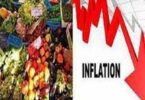F.P. Report
ISLAMABAD: Vice President of Pakistan Businesses Forum, Ahmad Jawad said for a country with a trade deficit like Pakistan, strong rupee is a boon, not a bane.
He said we have for long been a victim of a “weak-currency”.
With the rupee is touching almost 168 against the dollar, in result the agriculture of this country is suffering too. Due to free float policy by the Governor SBP the fertiliser prices are also going on high side. “Farmer compelled to purchase DAP at the rate of Rs 7000 per bag similarly nitrophos at the rate of Rs 4300 per bag and so for in the case of NPK fertiliser stood at Rs 4800 per bag”. Now SBP officials can imagine the cost of production of the crops.
On the other hand Minister of Finance and Revenue Shaukat Tarin Thursday told Senate Standing Committee on Finance that trade with Afghanistan will be in rupee now, Islamic Emirate government wants to save their dollar reserves because they know the importance for a strong currency.
Ahmad Jawad said it’s a good move too for our importers to deal in rupee. “In a currency-swap arrangement, countries that buy from each other pay with their domestic currencies at pre-determined exchange rates instead of trading in the US dollar.
This helps them save foreign exchange and thereby strengthen their domestic currencies”.
He said the government must formed a task force with representatives from the Commerce Ministry, the State Bank of Pakistan, the Federation of Pakistan Chambers of Commerce and Industry, to draw up a list of countries with which Pakistan could consider doing its trade in rupees.
I think trade with Iran and China too should be also in rupee, as we have a substantial import from China.
PBF official also told that business community have no idea as to what is the real exchange rate needed by the State bank of Pakistan and which is the end point for depreciation of rupee. Though the exporters would get some benefit against their export proceeds but the overall economy would face a tough time as the cost has been rising and finally it would affect consumption, which is the main wheel to run the economy.
“We are spending almost three dollars in imports for every dollar earned from exports and we cannot afford to keep imports this high”.
At a time when the foreign currency reserves had touch $27 billion, it clearly indicates the SBP was using exchange rate depreciation as a tool to make imports expansive but so far this mechanism had failed to stop rising trends in imports.
We appealed to the Prime Minister Imran Khan to take immediate action realizing the gravity of the situation as the appreciation of the dollar has led to fears that the rupee will depreciate further at the rate of 174 which is not appropriate for national security but also for the economy.






